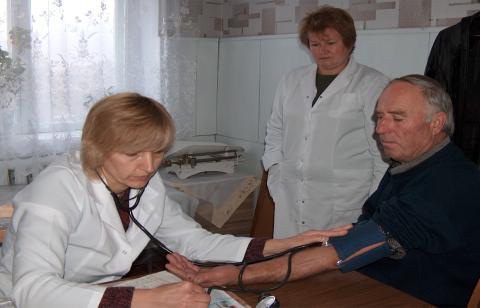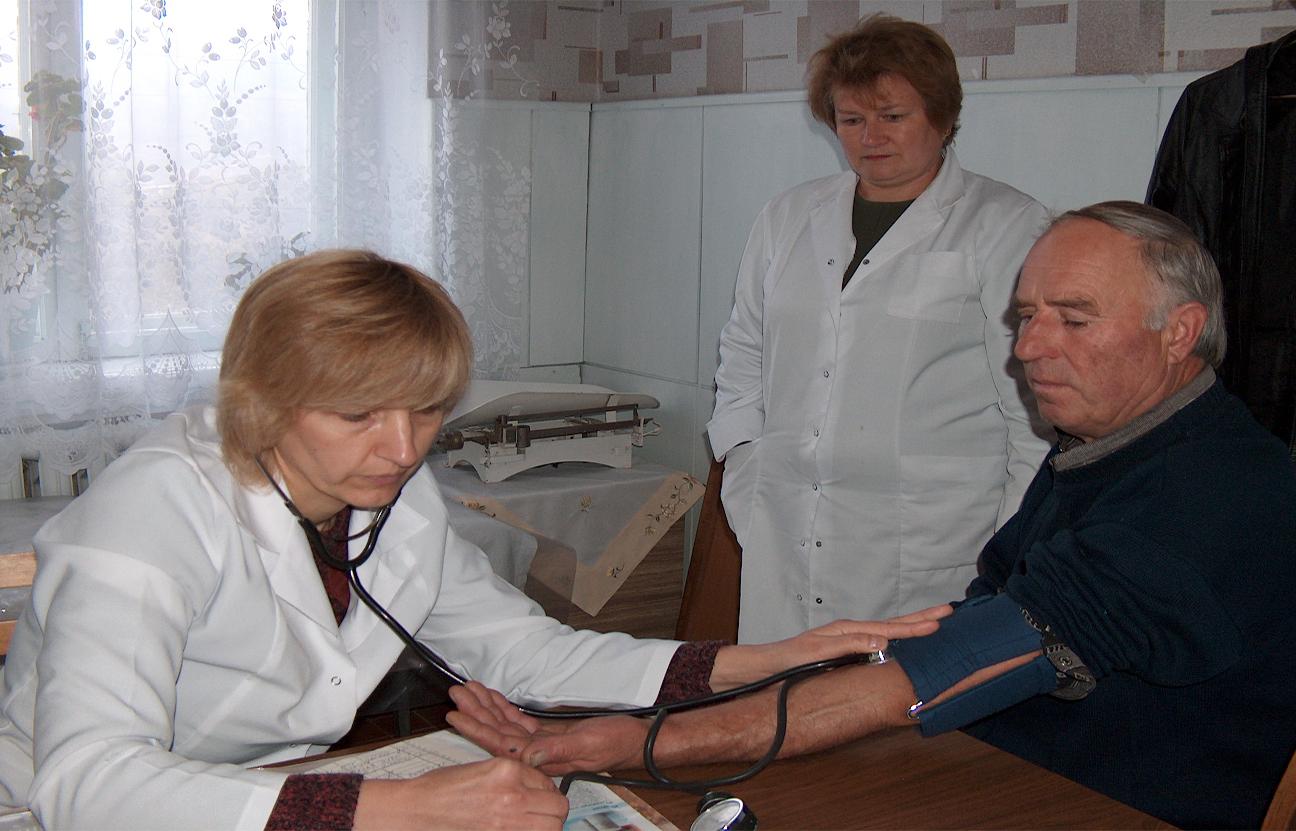
Along with many other countries, Republic of Moldova now faces a double burden of disease. Multi-drug resistant TB (MDR-TB) and HIV are still very prevalent, but noncommunicable diseases (NCDs) have overtaken communicable diseases as the major cause of ill health. The EU-WHO Universal Health Coverage (UHC) Partnership, which Moldova joined in 2011, supports the government of Moldova to develop the governance mechanisms and reforms that are essential for a stronger health system that can tackle this burden of disease.
Background
The collapse of the former Soviet Union in 1990, and the difficult economic transition that followed for many countries in the region, had a negative impact on the health status of Moldovans. Health care reforms such as the introduction of mandatory health insurance (MHI) in 2004, combined with a re-orientation to primary health care from a pre-1990 hospital-centric system, have been two factors leading to improved access to care, but hurdles still remain in a country where life expectancy is around 10 years lower than the EU average.
What the EU-WHO UHC Partnership does
From the very beginning, WHO has been supporting the Ministry of Health and health sector in the reform processes including policy advice, technical assistance and capacity building. Realizing the need to more explicitly support policy dialogue processes around these key health reform issues and after EU, WHO and health authorities consultations it was decided to include Moldova into the EU-WHO National health policies, strategies and plans and universal health coverage since late 2011.
This initiative provides a platform for health policy dialogue and aims to amplify the health messages – where issues on the policy agenda can be discussed regularly at national, subnational, cross-sectorial and global levels. Different stakeholders (not only from the health sector) engage in policy dialogue on health system-related issues: health financing for universal health coverage, pharmaceutical policies, child and adolescent health, primary health care, and access to care among others. Understanding key elements such as situation analysis, priority setting, accountability and stakeholder involvement will lead to better results.
One of the innovations of the EU-WHO UHC Partnership in Moldova is the introduction of an annual National Health Forum. The first Forum was held in 2012, and it brings together hundreds of decision-makers – politicians, health practitioners, international organizations, and representatives of other sectors – to engage in policy debates on health reforms. The Forum provides an opportunity for participants to join the global debate on, for example, post-2015 and universal health coverage, and on regional policies such as Health 2020 the European policy for health and well-being. Further the national priorities and reflection on reform process are covered together with other sectors views on improving health. The Forum is also a platform for international partners (e.g. the World Bank, SDC, etc) to align their plans. Topics addressed in November 2013, included how health services should be structured; decentralization policies; and tobacco control policies. Moldova has one of the highest reported rates of tobacco use in Europe, and the country is taking steps to adopt national legislation in line with the WHO Framework Convention on Tobacco Control (FCTC). According to a WHO report in 2013, 51.1% of adult males and 7.1% of adult females smoke in Moldova.
In 2013, the UHC Partnership through WHO and the Ministry of Health hosted a series of policy dialogue sessions at the local level on hospital sector regionalization and quality of health services. The programme essentially simulated the same discussions at district level that were being held at national level, and it also provided an opportunity to disseminate the evidence available at national level to local policy makers. The findings and key recommendations were shared with the Ministry of Health and presented in the National Health Forum. The overall goals of the programme are: to increase communications between health sector stakeholders, to make decision-makers more accountable, and to ensure that health policies cater to the population in an equitable way.
“This is very exciting, as we’re going to be looking internally as well as to the broader foreign policy environment to come up with policies that work,” said Dr. Jarno Habicht, WHO Representative in Moldova.
Another important policy framework that will be concluded in 2014 is the EU-Moldova Association Agreement. The framework, aligned with EU standards, focuses on policy and public administration reforms. These reforms are expected to have a positive impact on the health sector, by taking measures to improve access to services.
Policy dialogues 2014
Pilot ‘local health profiles’ made up of quantitative and qualitative data collected at the local level, are being created and piloted, that will provide key recommendations at district and national level to strengthen the current system. The EU-WHO UHC Partnership in Moldova leads to various dialogues within institutions, informed decision making, and better communication – including informal information sharing within the Ministry of Health. It has also increased capacities to engage in international dialogues, and in national and local level dialogues on priority health topics. In 2014, the topic specific policy dialogues will continue to focus on four main themes:
- out-of-pocket payments and inefficiencies in health care
- health system strengthening and addressing noncommunicable diseases
- health system strengthening and tuberculosis control
- quality of health care
The dialogues will also cover aspects of UHC such as equitable access, financial protection, and quality of services.
“Moving forward, there is a real need to better explain what is at stake to the population, and to understand the realities of the local environment in order to contextualize the policy advice,” says Dr. Habicht. “The uniqueness of the current partnership between WHO and EU is, first and foremost, the ability to start discussions, bring partners together, and increase communications between different actors. Decision-makers need to be made more accountable for addressing current and future public health challenges such as non-communicable diseases, where universal health coverage can provide the solution.”
